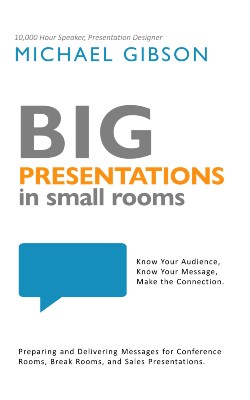To be a trustworthy guide, it is vital for you to exhibit the characteristics of an effective presence. You have a presentation goal. You have an audience. And you are determined to connect the audience to the content in ways that lead them toward the goal. You realize that your content’s quality is important, but it is not the only thing that will make an impact. Your words can change the world, so you want them to be heard.
Your presence matters. Great content delivered poorly is not likely to succeed.
Here are three things to keep in mind as you consider what presence will be most effective in your specific situation:
Characteristics of an Effective Presence include awareness, wisdom, and adaptation.
Effective Presence via Awareness
The first characteristic of an effective presence is awareness. Be aware of your natural inclinations. Are you usually soft-spoken? Outgoing? Assertive? Thoughtful? Do you enjoy planning? Or would you rather execute someone else’s plan?
What tends to get you in trouble? Moving too fast? Or moving too slow? Making rash decisions? Or failing to decide at all?
Are you more like a jack-hammer or a gentle whisper? Are you more like a radio announcer or a librarian?
How should you present the information? What presence is most effective? These are challenging questions. The answers require further awareness, wisdom, and a willingness to adapt.
In addition to awareness of yourself, there is a need to be aware of the situation. What is the context of this presentation? Are things going well? Are resources plentiful and available? Or is the organization in a time of turmoil, loss, and restricted resources?
Is it your job to bring good news? Or are you bringing brutal realities to light?
Are you guiding the audience to take risks or avoid risks? Are you providing more than information? Are you expected to bring hope? Or comfort? Or accountability?
Finally, be aware of the participants. What is the mix of personalities? What are the challenges facing each individual? How is this presentation likely to be received by each person? Are you stepping into a situation where power-plays are at work? Is there tension among the audience members?
Is there a clash between your personality and the personalities of one or more people in the audience?
What role are you playing? Is this a peer-level meeting? Are you leading employees, or are you reporting to those higher up in the organizational structure? What is your professional relationship with each person in the audience?
These are all questions that can increase your awareness.
Be aware of yourself, be mindful of the situation, be aware of the personalities involved.

Effective Presence via Wisdom
The first characteristic calls you to build your knowledge of the situation. Now we must consider how to use that knowledge best. The second characteristic of an effective presence is wisdom.
The appropriate application of knowledge is called wisdom.
Wisdom leads you to define the best response to the awareness you have. How do you respond to the knowledge of your natural tendencies? How do you respond to the context of your presentation? How do you respond to the fact that your audience is made up of diverse personalities and varying needs and desires?
Knowledge alone could lead to despair and feelings of being overwhelmed.
Wisdom uses knowledge to create a pathway to hope.

Effective Presence via Adaptation
The first characteristic, knowledge, informs the second characteristic, wisdom. The third characteristic of effective presence is adaption. Adaptation is wisdom put into practice.
Given what you know and what you have defined as the best response, now it is time to put thought into action.
Adaptation is the area of most significant risk and greatest reward. It is the place where nervous sweat happens, and fears are overcome. This is where you make the changes needed to meet the needs of a specific situation.
Your natural inclinations might be perfect for this situation. That would be great!
Your natural inclination might be the opposite of what it needed. Thankfully, you have the ability to own characteristic #3. You can adapt!. Your impulses do not limit your behaviors. Your inclinations are not your only options.
You can be more assertive than is comfortable. You can hold your tongue and listen even if it is not easy. You can slow down when you want to forge ahead. You can adapt!

An Effective Presence Leads to Desirable Outcomes
This is good news. There are three must-have characteristics of an effective presence. All three are within your reach. You can gain awareness of yourself, the organizational situation, and the personalities involved. You can use wisdom to plan accordingly and respond appropriately to each reality. And you can put those plans into action even if it calls you to act in ways that are not natural for you.
When you are determined to provide what is best for the audience, awareness, wisdom, and adaptation can help you succeed.
Want to know more? Keep reading the blog!
Do you prefer to listen? Check out The Big Presentations Podcast!
Want to know even more? Order the book Big Presentations in Small Rooms!
Let share stories! Share a memory of a time when awareness and wisdom led to an adaptation of a presentation.




